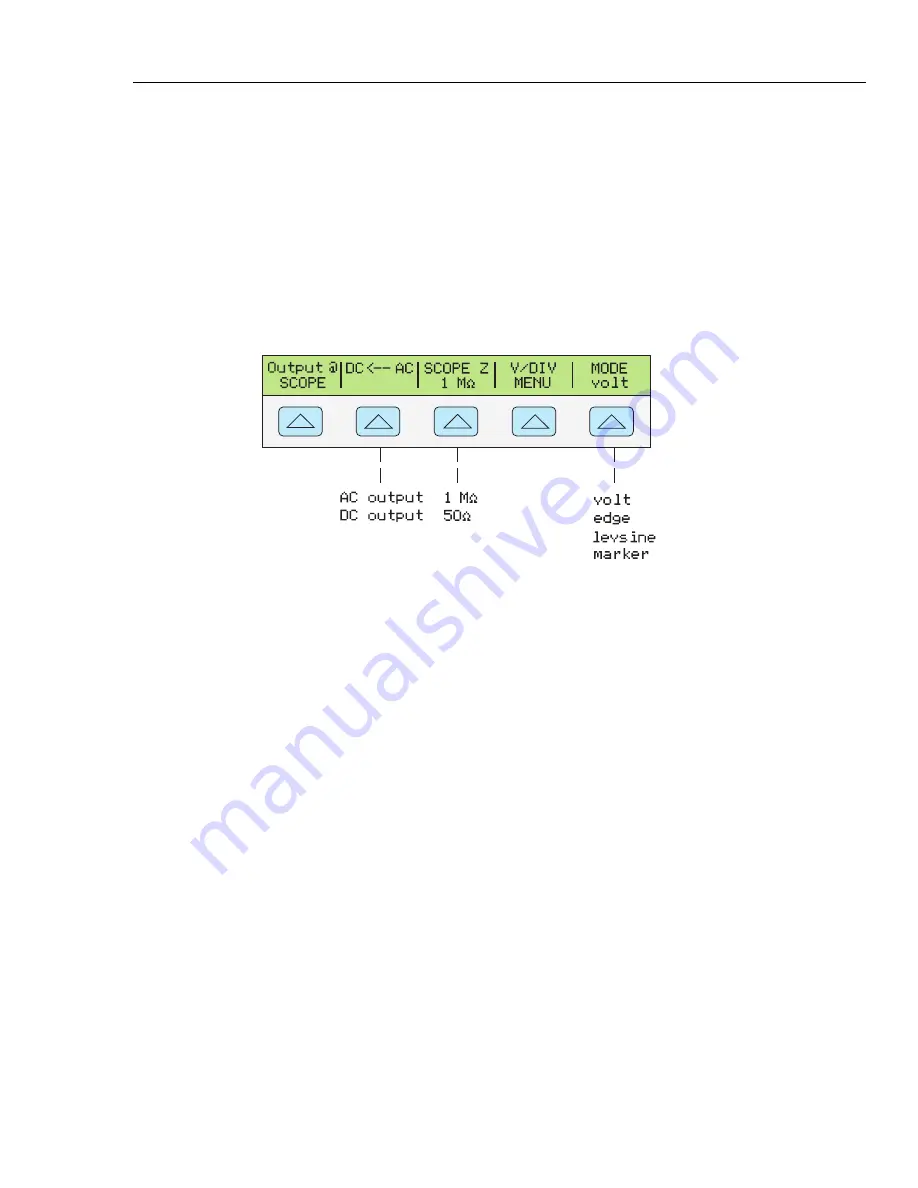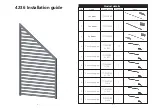
Scope Calibration Option
Calibrating the Voltage Amplitude on an Oscilloscope
7
Calibrating the Voltage Amplitude on an Oscilloscope
The oscilloscope voltage gain is calibrated by applying a low frequency square wave
signal and adjusting its gain to meet the height specified for different voltage levels,
designated by the graticule line divisions on the oscilloscope. The signal is applied from
the 5080A in Volt mode. The specific voltages that you should use for calibration, and
the graticule line divisions that need to be matched, vary for different oscilloscopes and
are specified in your oscilloscope’s service manual.
The Volt Function
The Voltage gain is calibrated using the Volt function. This function is accessed through
the Volt menu, which appears when you start the SCOPE option, or when you press the
softkey under MODE to scroll through the oscilloscope calibration menus.
gjm003.eps
Each menu item is described below:
•
OUTPUT @ SCOPE
Indicates the location of the signal output. If the signal does
not appear on the oscilloscope, press
. To disconnect the signal, press
.
•
DC -> AC
or
DC <- AC
Toggles between a dc and ac signal. Pressing the softkey
from the ac signal produces the dc equivalent output.
•
SCOPE Z
Toggles the calibrator’s output impedance setting between 1 M
Ω
and
50
Ω
.
•
V/DIV MENU
Opens the voltage scaling menu, which lets you select the scale of
the signal in volts per division. This menu is described below in detail, under “The
V/DIV Menu.”
•
MODE
Indicates you are in Volt mode. Use the softkey to change modes and open
the corresponding menus for the other three oscilloscope calibration modes.
The V/DIV Menu
The V/DIV menu, shown below, sets the number of volts denoted by each division on the
oscilloscope. This menu provides alternative methods for changing the output amplitude
that may be more convenient for certain oscilloscope applications. To access the V/DIV
menu, press V/DIV from the Volt menu.
riešenia na presné meranie
http://www.elso.sk
















































